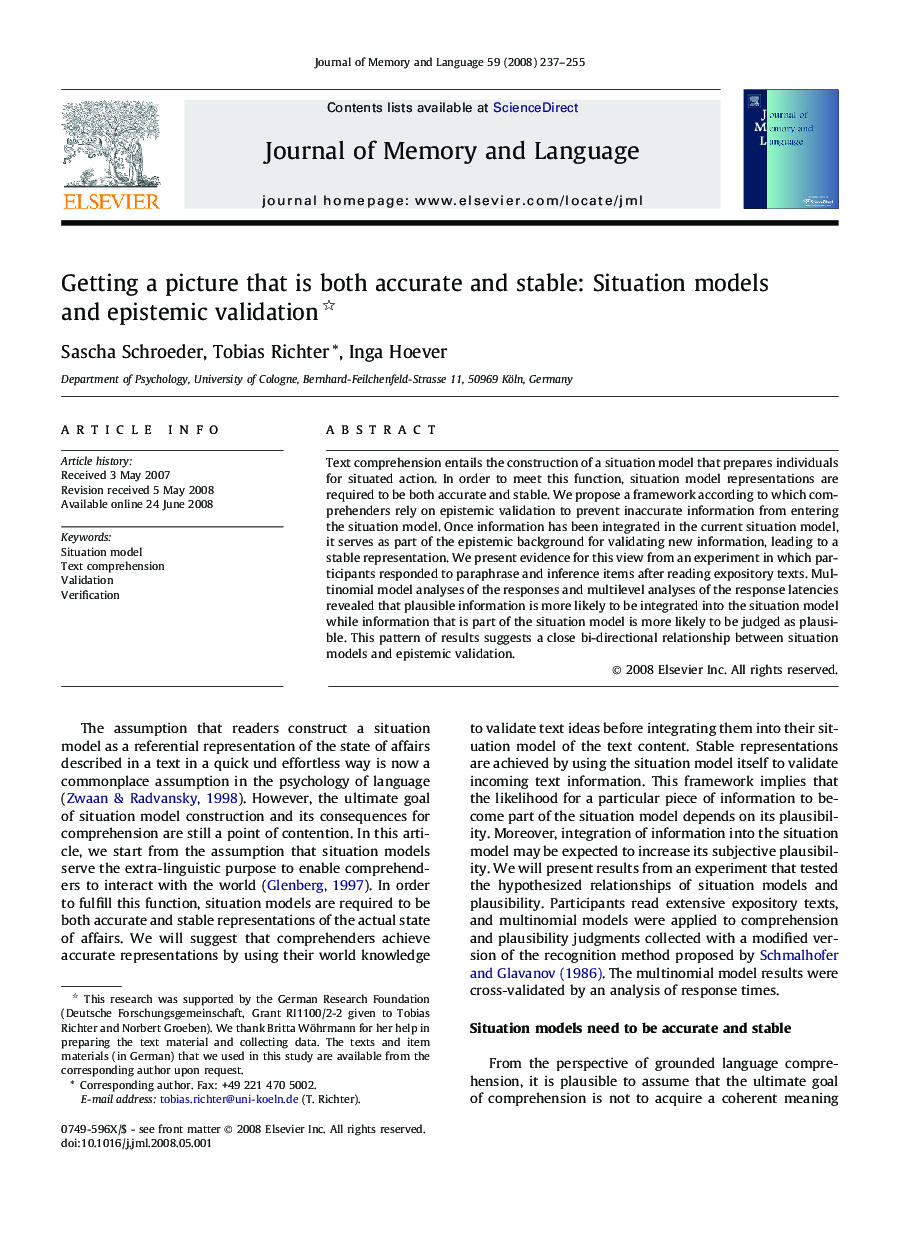| Article ID | Journal | Published Year | Pages | File Type |
|---|---|---|---|---|
| 932188 | Journal of Memory and Language | 2008 | 19 Pages |
Text comprehension entails the construction of a situation model that prepares individuals for situated action. In order to meet this function, situation model representations are required to be both accurate and stable. We propose a framework according to which comprehenders rely on epistemic validation to prevent inaccurate information from entering the situation model. Once information has been integrated in the current situation model, it serves as part of the epistemic background for validating new information, leading to a stable representation. We present evidence for this view from an experiment in which participants responded to paraphrase and inference items after reading expository texts. Multinomial model analyses of the responses and multilevel analyses of the response latencies revealed that plausible information is more likely to be integrated into the situation model while information that is part of the situation model is more likely to be judged as plausible. This pattern of results suggests a close bi-directional relationship between situation models and epistemic validation.
